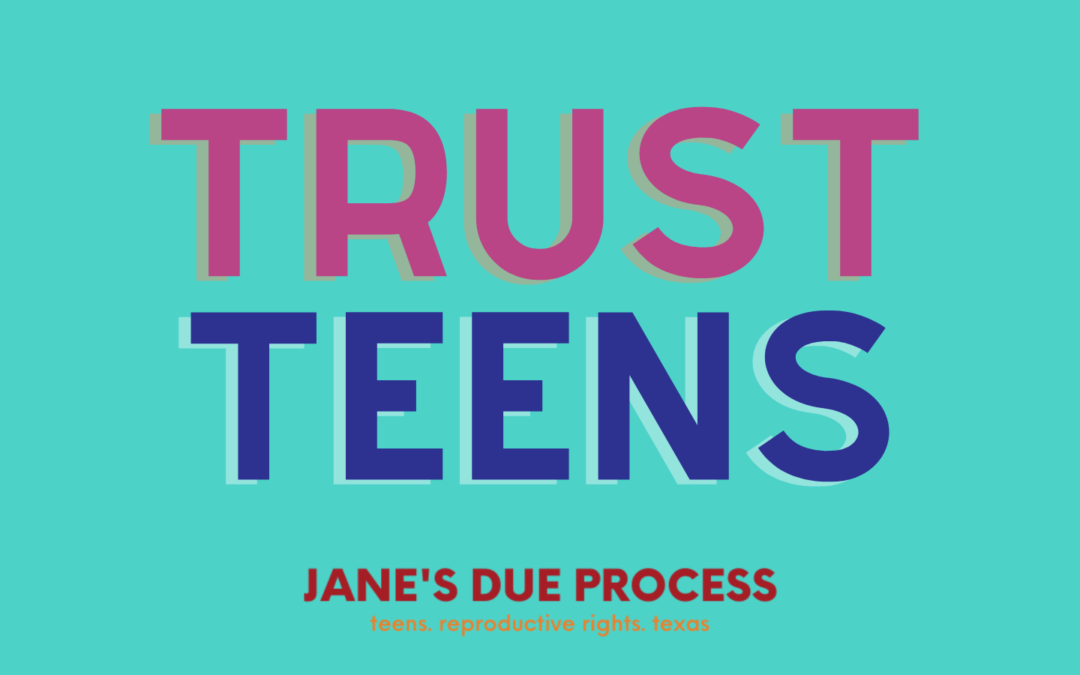Jane’s Due Process was founded in 2001 in response to Texas passing a parental notification law for minors to access abortion. A few years later that parental notification law turned into a parental consent law, and in 2015 our state legislature updated the law to make obtaining a judicial bypass for teens seeking abortion even more difficult and traumatizing for young people. If all of this sounds kind of confusing, it’s designed to be that way by anti-abortion extremists — but keep reading; we’ll explain everything.
So what are parental involvement laws? And why is Jane’s Due Process fighting to repeal the parental involvement laws in Texas?
More About Parental Involvement Laws
First let’s learn some of the terms. Some states have parental notification laws. This means that when someone under 18 seeks abortion care, their parents must be notified. Other states have parental consent laws. This means that for someone under 18 seeking abortion, one or both (depending on the state) of their parents must consent before they can access abortion. Judicial bypass is a process by which a teen can go to a judge to receive consent for abortion if there are barriers to involving their parents.
Parental involvement laws are designed to shame and stigmatize young people seeking abortion access, pure and simple.
Here’s more info on what parental involvement laws look like around the country:
According to Guttmacher, as of October 1, 2021:
- 38 states require parental involvement in a minor’s decision to have an abortion.
- 21 states require only parental consent; 3 of these require both parents’ consent.
- 6 states require both parental notification and consent.
- 11 states require only parental notification; 1 of these requires that both parents be notified.
- 7 states permit a minor to obtain an abortion if a grandparent or other adult relative is involved in the decision.
- 11 states require identification for parental consent.
- 4 states require proof of parenthood for parental consent.
- 2 states require a minor’s identification to have an abortion.
- 37 states that require parental involvement have an alternative process for minors seeking an abortion.
- 37 states include a judicial bypass procedure, which allows a minor to obtain approval from a court.
- 7 states require judges to use specific criteria, such as a minor’s intelligence or emotional stability, for deciding whether to waive parental involvement.
- 15 states require judges to use the “clear and convincing evidence” standard to determine whether the minor is mature and the abortion is in their best interest when deciding whether to waive parental involvement.
- Most states that require parental involvement make exceptions under certain circumstances.
- 35 states permit a minor to obtain an abortion in a medical emergency.
- 16 states permit a minor to obtain an abortion in cases of abuse, assault, incest or neglect.





